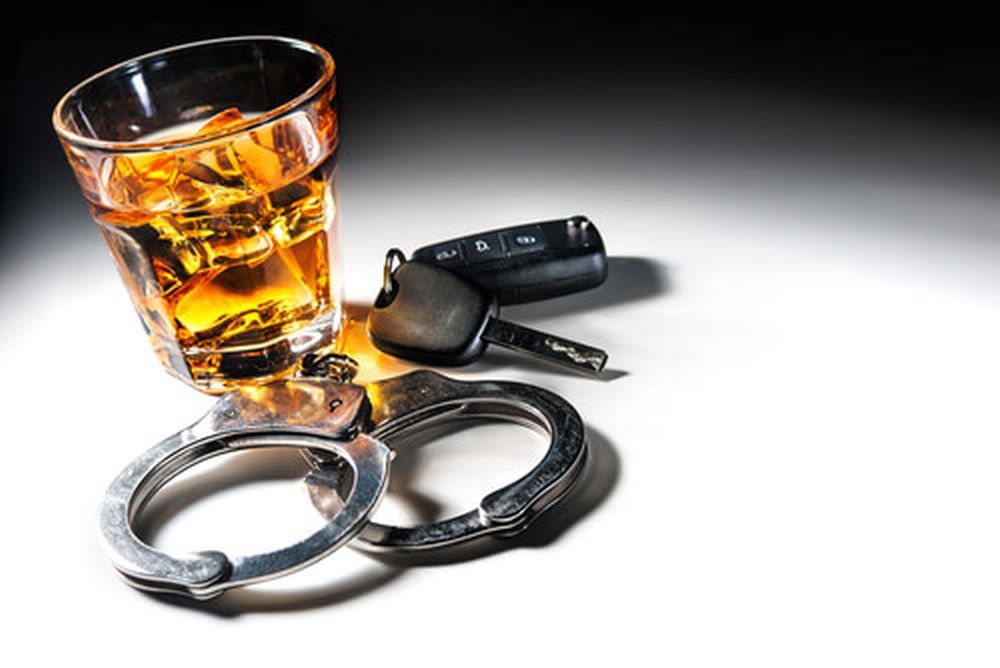A Comprehensive Breakdown of SR-22 Texas DUIs
SR-22 is a Texas form that is required for drivers who have had their driving privileges taken away due to a conviction for Driving Under the Influence (DUI). It is designed to help Insurance Companies make sure that the driver remains in compliance with the courts order and other requirements. Since a DUI can have serious, life-changing consequences, it is important for drivers to understand what is required for SR-22 Texas.
In Texas, an SR-22 filing is mandatory after a DUI conviction. It is typically required for a period of 3 to 5 years and must be provided to the Texas Department of Public Safety (DPS) and submitted to the drivers insurance carrier. An SR-22 will include a statement that attests the driver has the necessary car insurance coverage and is meeting their terms of supervised release. This serves as proof of financial responsibility that the driver is in compliance with the court mandated requirements.
To be in compliance with their SR-22 filing, drivers must make sure that their car insurance is up to date and that all of their DUI fines have been paid. The driver must also inform their insurance carrier of any changes of address or vehicles being owned or operated. If the driver fails to meet these requirements, their insurance may be suspended and the SR-22 filing could be revoked.
In addition to filing the SR-22 form, drivers are also typically required to complete an Alcohol Education Program, attend community service, and meet other obligations as imposed by the court. The driver may also be required to install an ignition interlock device (IID) into their vehicle for a specified period of time. This device will require the driver to submit a breath sample before the car will start.
Drivers should also be aware of Texas open container law, which is a zero-tolerance policy for anyone under the age of 21 operating a motor vehicle. An open container violation is a criminal offense that carries much stricter consequences than a civil infraction. A conviction could result in a hefty fine and even a jail sentence. Additionally, a conviction of any alcoholrelated driving offense will result in the suspension of the drivers license.
When trying to figure out how much their SR-22 filing will cost, drivers must keep in mind that there may be other court costs, such as fines, probation fees, enrolling in an Alcohol Education Program, and other expenses. The typical submission fee for an SR-22 is typically around $25, but that will vary from state to state. This fee is usually paid directly to the insurance company and any additional costs related to SR-22 filing, such as alcohol education classes and IID installation, are paid by the driver.
HSMV 83083 is the official Texas form for filing an SR-22. This form must be completed and signed by the driver before it can be submitted to the Texas DPS. It is important to note that submitting a false SR-22 could be considered insurance fraud in the state of Texas. Therefore, it is critical that all of the information on the form is accurate and up to date.
When it comes to reinstating a drivers license after a DUI conviction, there are restart procedures that must be completed which include fees, completing an Alcohol Education Program/Assessment, reinstating the drivers license, providing proof of insurance, and other requirements. Drivers in Texas must make sure that all of the necessary steps are taken in order to be compliant with the courts order and to ensure that their driving privileges are properly reinstated.
Suspension of a drivers license due to a DUI can have long lasting consequences, so its important for drivers in Texas to be aware of their SR-22 filing requirements. Therefore, drivers should familiarize themselves with the Texas SR-22 filing requirements in order to make sure that they dont miss any deadlines and that all documents are accurate and up-to-date. Drivers must also be aware of the potential fines and jail sentences that can be imposed if the requirements are not followed.
Other Related Topics
Drug Testing: One of the main reasons why drivers in Texas are required to file an SR-22 is due to a drug-related offense. Drug testing is often part of the SR-22 filing process, so it is important for drivers to be aware of the potential outcomes. If the drug test results come back positive for a controlled substance or a substance that has not been prescribed, the SR-22 filing may be denied and the drivers license could still be revoked.
Vehicle Registration: Drivers that are in compliance with the SR-22 requirements must also be aware of the vehicle registration requirements for the state of Texas. Since SR-22 filings are typically valid for 3 to 5 years, it is important for drivers to keep their registration up-to-date in order to avoid any future complications. Furthermore, drivers must carry proof of registration with them when operating their vehicle in order to comply with the SR-22 filing requirements.
Auto Insurance: One of the most important aspects of an SR-22 filing in Texas is having the proper car insurance. This is one of the main reasons why drivers are required to file an SR-22 in the first place. Drivers must make sure that they have the correct amount of coverage and that their financial responsibility is in compliance with the court-mandated standards.
Education Programs: In most cases, a DUI conviction in Texas will require the driver to enroll in an Alcohol Education Program. These programs are designed to teach drivers the potential risks and consequences of drinking and driving. This education is meant to show drivers the dangers of drinking and driving and help them learn how to be responsible on the road.
Ignition Interlock Devices: An ignition interlock device (IID) is a small device that is installed in the drivers vehicle which requires the driver to submit a breath sample in order for the vehicle to start. It is typically installed as a result of a DUI conviction and is a common part of a drivers SR-22 filing requirements.
Penalties and Fines: In Texas, a DUI conviction can result in both criminal and civil penalties. Criminal penalties can include jail time, fines, and license revocation. Civil penalties can include additional fees, enrollment in an Alcohol Education Program, and installation of an ignition interlock device.
Driver Responsibility: Drivers in Texas have an obligation to make sure that their SR-22 filing is up-to-date and that they remain in compliance with the courts order. Drivers should also make sure that all of their DUI fines are paid and that their vehicle registration and car insurance are in order.
Research: Before filing an SR-22 in the state of Texas, it is important for drivers to do their research. This way, they can be sure that they understand all of the requirements and that they are familiar with any potential fines or jail sentences that can be imposed.
Conclusion: SR-22 filing in Texas is a complicated process that can have serious consequences for drivers if they dont follow the proper procedures. Drivers must make sure that they understand all of the requirements and that they remain in compliance in order to avoid any potential penalties and jail time.



